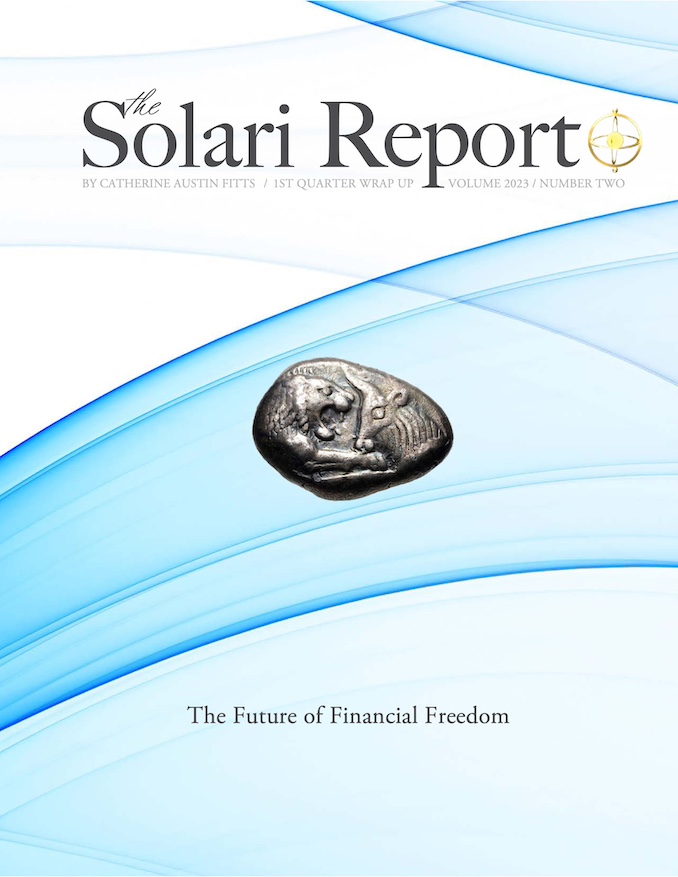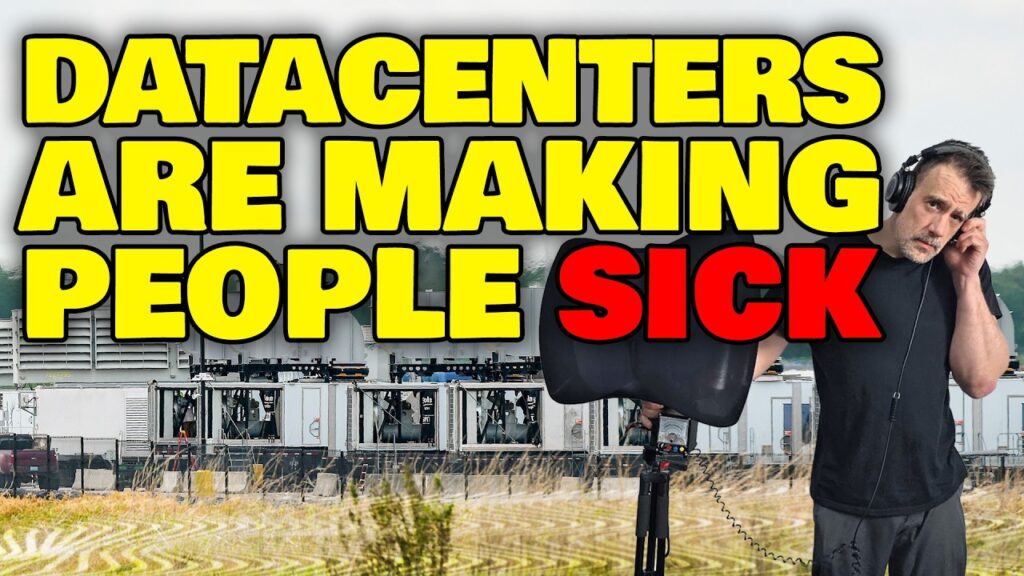
A Short Preview (Login to Access the Full Interview):
[Errata: At 30+ mins in, Catherine refers to a former Fed governor who she admires as Larry Summers. Oops. She meant Larry Lindsey.]
“The book … highlights the implications for the rest of the world, and raises important questions about the concentration of power within central banks.”
~ Description of Princes of the Yen by Richard A. Werner
By Catherine Austin Fitts
This week, we continue the publication of our 1st Quarter 2023 Wrap Up, focusing on the theme of financial transaction freedom. We review the multiple threats to transaction freedoms and talk about steps we can take to protect ourselves, including the potential role of sovereign state banks.
My guest, Richard A. Werner, is the world’s leading expert on central banks. Professor Werner is a London School of Economics and Oxford-educated economist, a university professor of banking and economics (University of Winchester, England), an authorized investment adviser, and an economic adviser to governments. His best-selling book, Princes of the Yen (published in Japan in 2001 and in the English-speaking world in 2003), formed the basis for the 2014 documentary by the same title, with both book and film exploring the power of central banks—often shrouded in secrecy—to transform economies. The film’s director, Michael Oswald, described Prof. Werner’s theory and findings as “truly earth shattering.”
Earlier this year, the Solari Report commissioned Prof. Werner to write the briefing memo titled “Why a Sovereign State Bank Is Good for Tennessee,” a memo intended to educate Tennessee legislators—and legislators in other states. A sovereign state bank can help states counter threats to state-level sovereignty and economic prosperity and also halt the ominous trend of banking system concentration. In this interview, he and I will elaborate on the numerous reasons why this is such a timely topic deserving of both legislators’ and citizens’ attention.
Currently, the Bank of North Dakota is the only such bank in existence in the U.S.—and it provides an excellent model that other states can emulate. A sovereign state bank that supports (rather than competes with) private local banks and credit unions can protect and reinvigorate the community banks that are the lifeblood of small and medium-sized enterprises and hence, thriving local and state economies.
In early May, we will complete publication of the 1st Quarter 2023 Wrap Up with my quarterly Equity Overview—an interview with Tim Caban when he joins me in Pennsylvania.
Money & Markets
In Money & Markets this week, John Titus and I will cover the latest events and continue to discuss the financial and geopolitical trends we are tracking in 2023—and the growing pushback against corruption. Post questions at the Money & Markets commentary here.
Related Solari Reports:
Why a Sovereign State Bank Is Good for Tennessee
The Solari Papers #2: U.S. State Bullion Depositories
“The Many Excuses for Central Control” (Catherine Austin Fitts with Professor Richard Werner), Session 4 of Doctors for Covid Ethics Symposium, June 11, 2022: Freedom is the Cure: Unpacking & Defeating the Medical Tactics of a World Takeover
Richard Werner on CBDCs: How They Prepare You to Be Their Slave
I Want to Stop CBDCs – What Can I Do?
Let’s Go to the Movies: Week of May 26, 2020 – Princes of the Yen
Other Related Resources:
Princes of the Yen: Japan’s Central Bankers and the Transformation of the Economy
Princes of the Yen: About the Film























































































































What’s the name of Richard Werner’s telegram channel?
https://t.me/WernerEconomicsGroup
at 1:50, what Prof Werner is describing about the ‘theories’ of economics is *exactly* what Mr Global has done with medicine and the germ theory.
there is so much theory in today’s world which is not true, which was designed by Mr Global to disguise the truth, and then propagated through the ‘higher’ education institutions to make them the accepted truth by consensus. this is a primary cause of the fact that today’s professionals (in many fields including medicine, economics, governance) have largely been completed brainwashed and are unable to entertain other possibilities.
one way out of the current knowledge crisis would be for people to stop going to those higher education institutions and instead doing their own research and experiments. people should not be forced into a specific field of learning. they should be free to learn whatever they feel a connection to, in whatever way they wish to learn.
at 52:50 in the linked Princes of the Yen movie, the narrator states:
control the education system and you can control everything, even more so when you attach elite status to those who graduate from that system. The elite status blinds them to the true nature of what they have learnt and indeed pushes them to reject any and all information that might bear negatively on their achievements and status. they have become members of a guarded cult whose dogma must be protected at all costs.
Dear Catherine
Thank you for an enlightening conversation.
What are your thoughts on Singapore? Singapore seems to be a highly centralized and controlled state but it also seems to be a successful, prosperous and well-functioning place. That being said, many old people have to work cleaning tables in food courts because their pensions are not sufficient for them to live on. In theory one can buy an apartment and own it but the government has to approve every sale in order to make sure that the ethnic balance in the building is maintained. I find the place stifling.
Whenever I hear the Fed mentioned in the news it is invariably in relation to interest rate policy. It is important that Richard reminds us that the main purported reason for the Fed to have been established in the first place was to be a lender of last resort and avoid financial crises. It is even more important that Richard reminds us of the fact that the Fed has consistently failed miserably in achieving its aim unless, of course, the the real aim is to destroy savings and scoop up assets at bargain basement prices.
I didn’t catch the other ways the banks can avoid runs other than having a central bank as a lender of last resort.
In the example of South Africa, I didn’t understand what happens to the newly bought ZAR sitting in the NY banks if the South African banks make loans in ZAR created out of thin air.
I’d be interested to hear what you and Richard think about microfinance banks such as the Grameen Bank. Do they lend out deposits or do they too create money out of thin air?
Richard dispels many commonly held ‘truths’ and in understandable terms without fancy words or complicated graphs he throws light on how the economy really works. His talk in Malmö definitely worth watching.
I look forward to seeing more of Richard on Solari in the future.
Brilliant discussion!
We need to keep Fitts and Werner in prayer as they shed light on these critical issues.
Handsome, intelligent, compassionate! What a combo! And a great discussion! Loved this! I’ll listen again. Lots to ingest here! Thank you CAF and Richard Werner!
I guess I have to reinstall Telegram now. Lol.
At about 1:16 Catherine abruptly jumps in for no good reason to prevent Richard from saying something important. Why? What was Richard about to say that needed to be blocked?
Watched from 1:15 to 1:18. Can not figure out what you are referring to.
“The last president who dared to do that…………….” was President Kennedy who was murdered because of his intention to terminate the charter for the Federal Reserve which came up for renewal in 1963, fifty years after its creation. He signaled his intention by printing greenbacks under the aegis of the Department of the Treasury.
The reason Jack Kemp was angry with you was because he thought you were being disingenuous. You were not. Then.
We are at war. You at times appear to be reticent about naming the bad actors. You are too intelligent not to know who they are.
We are not going to win if we refuse to face up to who our enemies are or are too afraid of what the consequences might be if we expose them.
“Ten percent of our Congressmen are dual citizens. Ten of the twelve Cabinet members are dual citizens.”
Thank you Richard and Catherine – just brilliant. Knew JFK had printed Treasury greenbacks, but not that the Fed’s charter was up for renewal in 1963. I may be unusual being ignorant on that point, but I don’t think so.
Catherine, would you consider digging into the status of the Fed’s charter in one podcast or another – or might John? The grounds for renewal or termination would, of course, be particularly interesting.
The book to consult is:
US Money vs Corporation Currency, by Alfred Owen Crozier
Pages 23-24, The cited passage discusses the Aldrich Plan. I would read both pages completely because “50 years” is mentioned 3 times.
Kemp was angry at me for several reasons IMO. One was I was wealthier than he was. Problems started when he and his immediate staff saw my financial disclosure. It was Kemp who said he would never come to my house as my house was bigger than his house, he would find it castrating. Two was because I was respected as a capable manager and he was not – word went out around town if you want to get anything done at HUD, see Fitts, not Kemp. Third was because I refused to implement illegal transactions.